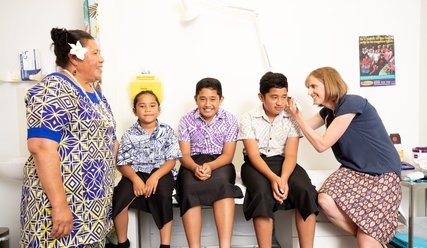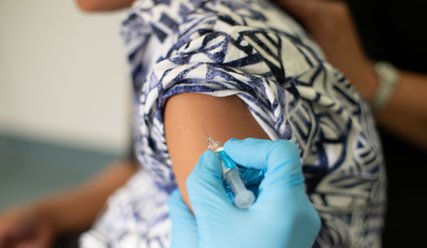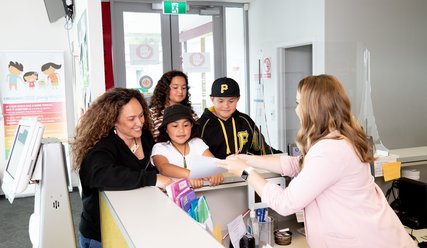Shaped by communism, cancer and controversy
Dr Tane Arataki Taylor (Ngāti Ranginui, Ngāti Hangarau, Tainui, Te Aroha and Takitimu waka) has achieved a host of accolades throughout his career. Awarded as a Fellow of the Australasian College of Nutritional & Environmental Medicine in 2004 and made a Distinguished Fellow of the Royal New Zealand College of General Practitioners the following year, he also served as chair of Te Akoranga a Māui for six years and was a former member of the Board of Education and Council.
In addition to holding an honorary senior lecturer post with the University of Auckland, Tane’s an examiner and assessor of the GP Fellowship Training programme and senior assessor for the Cornerstone Practice Accreditation Programme.
He also spent over a decade developing learning environments for medical workforce development. This is all on top of his ‘day job’ at Bakerfield Medical and Urgent Care in Manukau.
Although Tane’s resume may glow with years of experience, awards and advisory roles, a deeper discussion with Dr Taylor reveals the underlying powers that have shaped not only his professional expertise, but his entire life.
Tane holds the unique position of being Aotearoa’s only New Zealand-born Māori, Albanian-educated practising physician in the world. An honour shared with a slight adaption by his own daughter, who is the only Albanian-born Māori, New Zealand-educated practising physician.
In 1967, at just seven years old, Tane’s whānau relocated from Greymouth to Albania; a country which was deeply rooted in a closed communist regime. This began what Tane refers to as “a very unique experience,” and one that would continue for twenty years until, in 1987, Tane was able to return to Aotearoa with his own family. The process of leaving Albania taking five years to negotiate due to the country's reluctance to release Tane’s Albanian wife and daughter.
Tane recalls the sense of inequity during his childhood in Albania, “we were privileged. As foreigners, we were in special compounds with maids and chauffeurs. We were isolated, but then I also attended the local school and noticed the discrepancies between what people told me and what I was actually seeing. There was hardship, there were struggles. People lived in fear of big brother always watching. You really had to grow eyes in the back of your head.
“I’m very grateful to have had that experience. On the whole, New Zealanders are very naïve about totalitarian regimes, but it’s so important to look back and, having lived through those times, I know that what doesn’t work. Who dares forget history will repeat it.”
These formative lessons shaped Tane into an adult who questions and challenges every situation. “I’ve spent years hammering the system here,” he states. But after a serious health scare, Tane realised that he needed to prioritise his own wellbeing.
Tane was diagnosed with Gleason 9 prostate cancer. He’s been through major operations and radio therapy. “I’m over it,” he admits. “When you go through something like that it gives you enough time to reflect and prioritise.”
“When you have a major health scare you realise what’s important – personal health. Charity begins at home. After that, look after immediate family, then, if there are any leftovers help your neighbour.”
But a re-prioritisation of health has not dulled Tane’s approach to controversy. “I’ve always been the black sheep in the white world and the white sheep in the black world. I’m very cognisant of it and I’ve lived with it. It puts me in a strong position, I can smell when bullshit and hypocrisy is coming my way.”
“I was always anti-establishment,” he says. “In 2002, I was at a conference in Hawaii, in the pool, when a bald brown head approached me. It was Paratene Ngata. He said “you haven’t done your fellowship, but you want to fix the system?
You have to jump through their hoops first before you present your hoops for them to jump through. Get back home and you get your bloody fellowship!” So I did.”
Seventeen years later, Tane was made an Honorary Fellow of the Royal Australasian College of Physicians.
Although perhaps most proud of his role as one of three initiators to establish Te Ora – The Māori Doctors Association, he says that his career highlight was in 2018 when he was invited to be the Orator during the College’s conference. His role coincided with his daughter receiving her fellowship. “I got to give a speech to the new Fellows and share the stage with my daughter. I don’t think that’s ever happened before. It was very special.”


